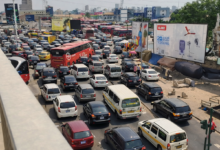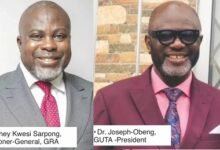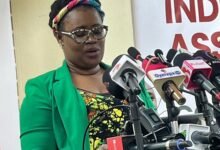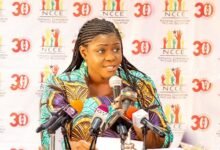‘Engage in dignified storytelling’

The convener of Alliance for Women in Media Africa, Ms Shamima Muslim, has urged journalists to engage in dignified storytelling in order to honour the people they report on.
She said that was because telling stories in a dignified manner sought to foster a common understanding of how storytelling could uphold the dignity of all persons.
“Dignified storytelling aims to amplify the voices of contributors, especially those who often go unheard, and to influence positive social change,” she added.
Ms Muslim was speaking on the “Role of Journalism in Ending Human Trafficking” in Aburi on Wednesday at a workshop organised by the International Justice Mission (IJM), Ghana.
She indicated that there were principles of dignified storytelling which could guide journalists towards telling stories that were grounded in deep respect, full transparency, and social responsibility.
“The principles are interconnected and each of the principles serves as a part of the whole,” she added.
Ms Muslim said the principles included “It is not my story,” “I do no harm”, “We are all multi-dimensional”,“Consent is more than paperwork” and “I am biased”.
The remaining were “I do my homework”, “I am empathetic”, “I protect others’ data like my own”, “Truth over headlines” and “A story can change the world”.
The convener for Women in Media Africa said being a good anti-human trafficking advocate demanded attitude, skills and knowledge.
Ms Muslim encouraged journalists to be compelling in ways they held duty bearers accountable, and ensure responsible, ethical reporting.
“Provide constructive feedback to newsroom managers and ensure sustained awareness creation on the menace by enabling visibility on the problems,” she added.
Ms Yaa Asamoah, an attorney in a presentation on “The Nature of Human Trafficking in Ghana and The Human Trafficking Act”, said poverty, income inequality, cheap labour, lack of job opportunities and false advertisements of job opportunities were some of the underlining factors of human trafficking.
She said traffickers in the country should be prosecuted to deter crime, break the cycle of violence and injustice, improve international rating and address the United Nations Sustainable Development Goals (SDGs).
Ms Asamoah said the human trafficking elements comprised the AMP model which looked at “Acts, Means and Purpose” of human trafficking.
The act, she said, included the recruitment, transportation, transferring, harbouring, trading or receipt of persons; means consisted the use of threats, force, abduction, deception, abuse of power while purpose included induced prostitution and other forms of sexual exploitation, forced labour services, slavery and servitude.
BY ABIGAIL ARTHUR, ABURI






